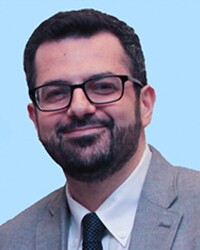
Dr. Nick Dahan, Professor and Director, Online MBA
California State University at Monterey Bay College of Business
As you are planning out your education and career, you may be considering furthering your education beyond an MBA with a doctorate degree in a business-related field. This is a big decision, given that it is likely a three- to six-year commitment that would affect your career and your family, both emotionally and financially. Be sure to make this decision after taking some time for careful consideration.
Here are a few key questions to ask in order to help with the MBA to PhD decision process.
Why Do You Need a Doctorate?
This is the most important question.
If you have substantial executive experience and you are interested in teaching in higher education, you may be eligible for the Association to Advance Collegiate Schools of Business’ (AACSB) “bridge” program, which helps executives become effective instructors. This program is designed for highly seasoned business leaders who are only interested in teaching, not pursuing research. They can teach in business schools either part-time or full-time in a contractual teaching-focused position (called non-tenure track, or clinical, or professor of teaching). In that case, a doctorate is not needed at all.
If the only reason to pursue a doctorate is to study a business discipline or to deepen your quantitative skills beyond what is possible in an MBA (even one with a concentration), you may want to consider a graduate certificate or a master of science (MSc). They offer the opportunity to take three to 12 courses with a narrower focus, such as data analytics, human resources management, project management, digital marketing, etc. A certificate or MSc is a great complement to an MBA, especially if your MBA consisted of, say, 10 courses covering 10 different business disciplines, with little opportunity to go deeper on any particular subject.
It must also be stressed that boosting earnings is rarely a strong reason to pursue a doctorate in business if you already hold an MBA or MSc in a business subject. As careers in the private sector are more lucrative and typically do not require a doctorate (other than a few corporate economist and financial positions where a PhD is a must), the financial return on the investment into a business PhD may actually be negative if you plan to go into academia compared to a private-sector career with an MBA. As an example, through a successful career in the private sector, a business executive may well earn more than $200K annually five or 10 years after completing their master’s degree in business, whereas it is highly unlikely that a business academic with a PhD will ever reach that salary level. However, while significantly increasing your earnings may not be the main reason, there are obviously plenty of other valid reasons for pursuing a doctorate.
Valid reasons to go from an MBA to a PhD include:
- Ensuring you achieve the deepest level of expertise on a subject matter, which can then be leveraged in the private sector, public sector, and consulting. Sometimes a graduate certificate or even an MSc is not enough for the kind of career you seek out
- Getting the opportunity to teach in higher education, either part-time as an adjunct while keeping your full-time job in business, or full-time by switching from a business career to academia. If the latter, the choice is often motivated by seeking a second career that allows more freedom and flexibility (stable employment and great benefits are important perks).
- For marginalized populations, it may be an important way to be given the respect they deserve. And business doctorate programs face a serious underrepresentation of minorities, in part because many programs do not offer scholarships and assistantships (instead, they are money-making programs for the universities), which decreases the likelihood of minority enrollment. Fortunately, there are initiatives to redress the situation and grow a pipeline of minority PhDs that can ultimately join academia, such as McNair fellowships in business, and The PhD Project.
Which Kind of Doctorate?
Not all doctorates are created equal. You have to choose one that matches your career goals:
Doctorate in Education (EdD)
This is not a doctorate in business per se. As such, it is very unlikely to lead to a full-time position at a four-year college nowadays. However, it can be useful in consulting, in specialized areas of Human Resource Management (adult education/training), or to pursue a leadership career in education (high school and school district, or on the administrative side of higher education such as Dean of students, Vice-Provost, etc.).
Doctorate in Business Administration (DBA)
In business fields, there are DBA and Executive Doctorate in Business Administration (EDBA) (EDBA/DBA) programs.
DBA programs are more practically oriented, focusing on conducting applied research. For example, a project the DBA student investigates in their professional context, as “action-research” that can be implemented quickly and deliver concrete benefits to their organization. Because the focus is on research that can be implemented in organizations, rather than published in academic journals to promote knowledge in the discipline, the DBA is well-suited for a career as a consultant. It could also be used to land a full-time position as an academic or a leader at a community college, where there is no expectation of conducting and publishing academic research.
Doctor of Philosophy (PhD)
PhD programs are more academic in content, typically providing even deeper training in research skills and subject matter, which often implies that they take longer to complete. A PhD first and foremost prepares students for a career in academia, specifically to be a professor or an academic leader, such as executive director, academic dean, provost, or president.
PhD programs focus on unique, theory-based research and publication of the findings of that research in academic journals and scientific books. If you are interested in a full-time academic career at a four-year college or university, a PhD is the degree for you. Of course, a PhD can also be leveraged in other careers such as consulting.
What Kind of Program?
Residential or online? Full-time or part-time? Every option exists.
If you aspire to mostly focus on teaching and therefore want to work at a college with a teaching emphasis, your PhD program options are broader than if you want to ultimately work at a business school where research expectations are more central. You have to select a doctoral program that will prepare you for the kind of academic career you aspire to: mostly teaching? A mix of teaching and research? Mostly research? Typically, the more prestigious the business school, the more emphasis is placed on research in its doctoral program.
If you want to be an academic, the more traditional route is to join a full-time residential PhD program where you can focus entirely on your studies and priming your research pipeline in order to prepare for a full-time academic position. Typically, seats are scarce at these PhD programs as it is extremely costly for universities to run these programs; they have to pay their most experienced professors to teach doctoral seminars to a very small number of students (often five to 10) who often have their tuition fully covered and get a scholarship or assistantship on top of that (often earning around $20K annually). If you are aiming to be hired as a faculty at a premier accredited school (AACSB-accredited for North America1, while in Europe EQUIS is another accreditation that is also prestigious), earning a PhD from a similarly accredited business school would be helpful (although outside of the USA there are quite a few prestigious business schools that are not AACSB or EQUIS accredited).
Some PhD and almost all DBA programs are part-time, offering students the option to keep working in parallel to their studies, but in that case, students have to pay tuition, which can add up to very substantial amounts over three to six years.
Finally, some programs are online rather than in person. In that category, a lot of DBA programs are either hybrid (each course has both an online and an in-person component) or mostly online with a small residency requirement (e.g., one weekend every semester). While it is not impossible to get a full-time academic position at a four-year college with a doctorate from a non-AACSB accredited business school, it is significantly harder, at least in North America. So, it is important to note that so far only one AACSB-accredited business school offers a fully online PhD program—University of North Carolina at Greensboro.
Start with Your Online MBA
Many roads lead to a doctorate in business, and upon completion it paves the way to a variety of careers. Therefore, this must be a personal decision based on your professional aspirations and work/life constraints. It is highly advisable to get in touch with professionals who successfully leveraged their doctorate in their careers, such as consultants or academics, in order to better understand the risks, challenges, and rewards of pursuing a doctorate, and the latest trends in their field.
Before moving on for a doctorate, however, you will want to pursue your MBA. Create the career and the life you want with the Responsible Business Online MBA from California State University, Monterey Bay. Keep advancing your career work as you earn your MBA with our 100% online curriculum which focuses on the increasing role and importance of responsible business.
About the Author
Dr. Nicolas (Nick) Dahan is a Full Professor of International Business and Strategy, and Director of the MBA program at CSUMB, College of Business.
He has worked as a full-time faculty at a number of institutions, both in the USA (most recently prior to CSUMB at Temple University-Fox School of Business) and France. He also has extensive adjunct teaching experience with American institutions, including George Washington University, Tulane University, Baruch College-CUNY, as well as top French business schools (ESSEC, ESCP Europe, Sciences Po), and executive education.
His scholarly work has been published in journals such as Business & Society, International Business Review, Journal of Business Ethics, Journal of Business Research, Human Relations, Long Range Planning, and Strategic Organization.
He has worked at several French firms, and has acted occasionally as a consultant for multinational enterprises as well as trade associations in either public affairs or international entrepreneurship/marketing.

